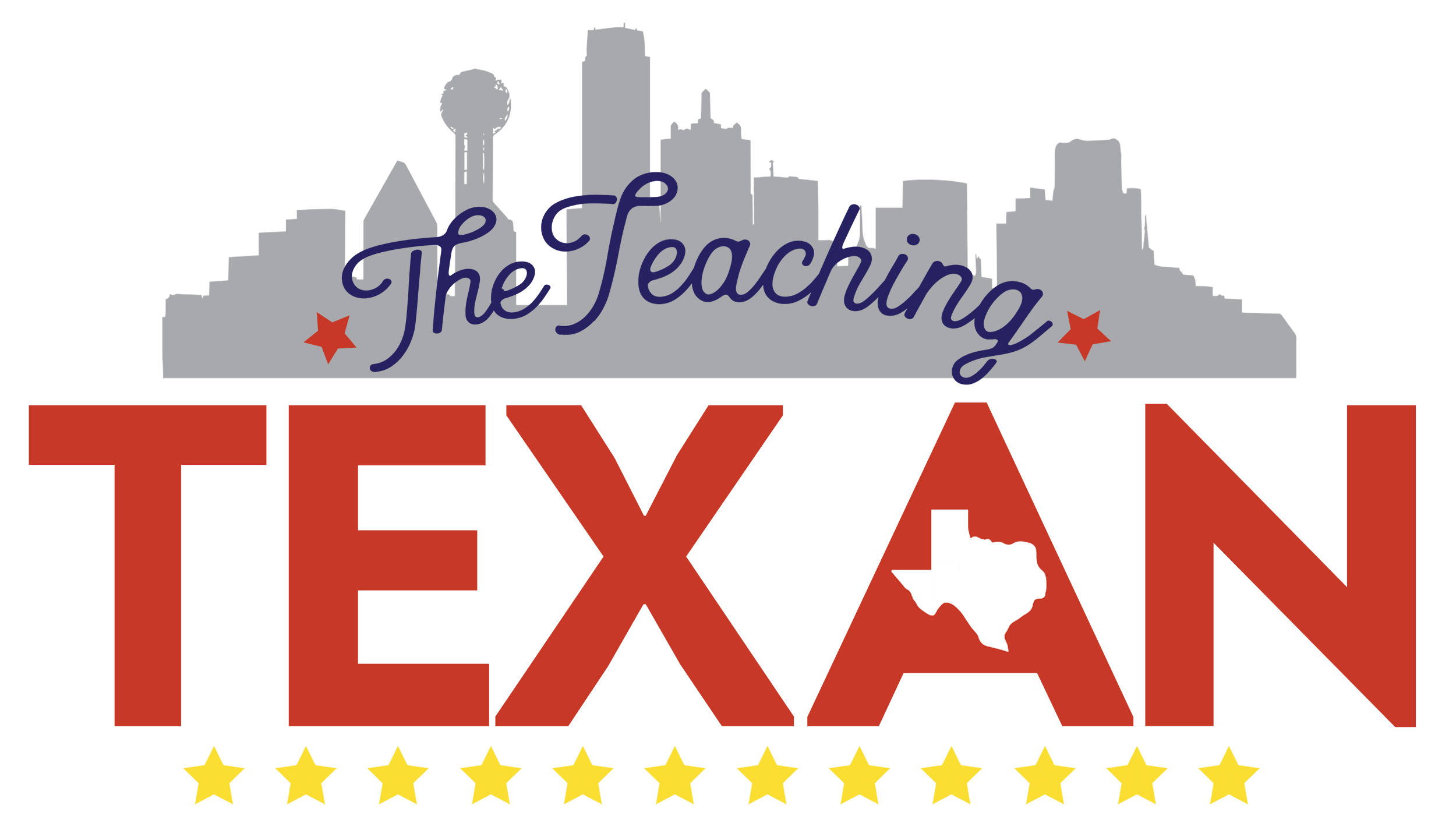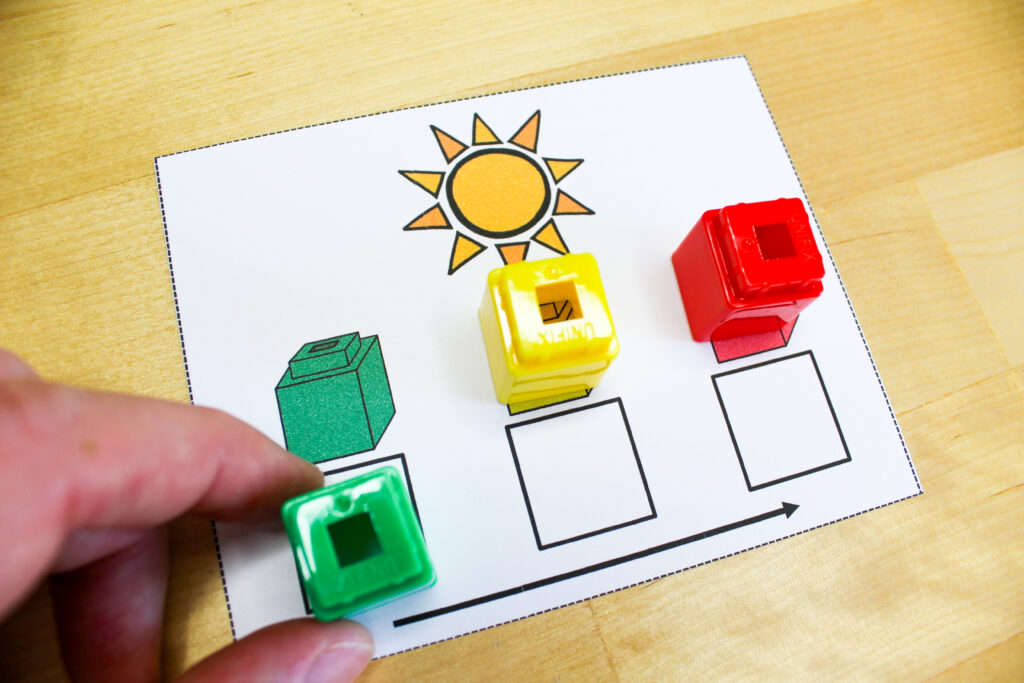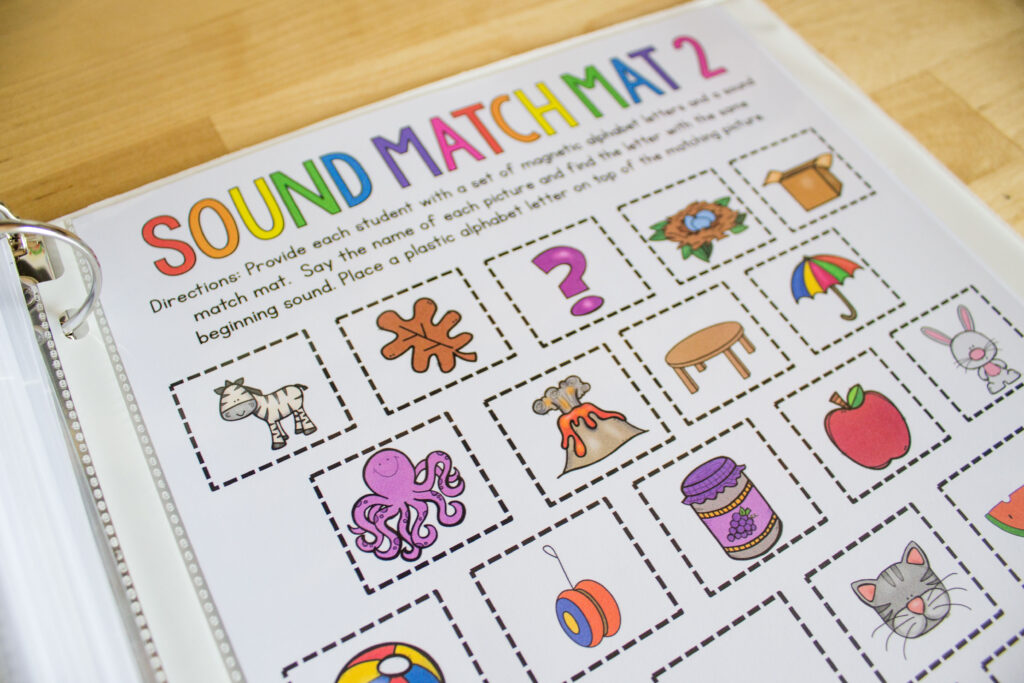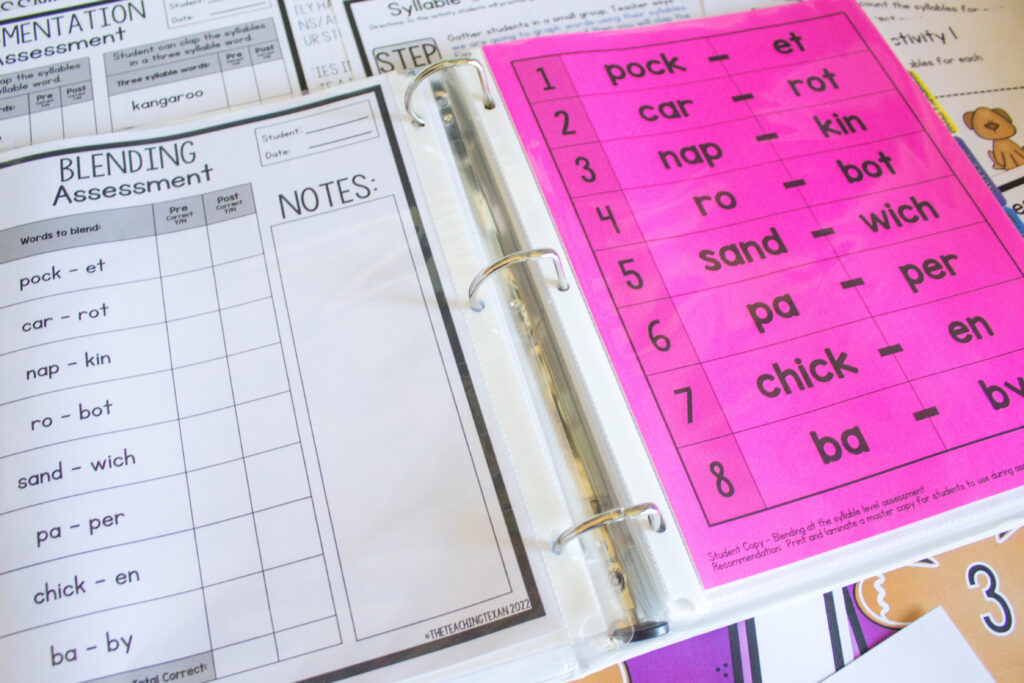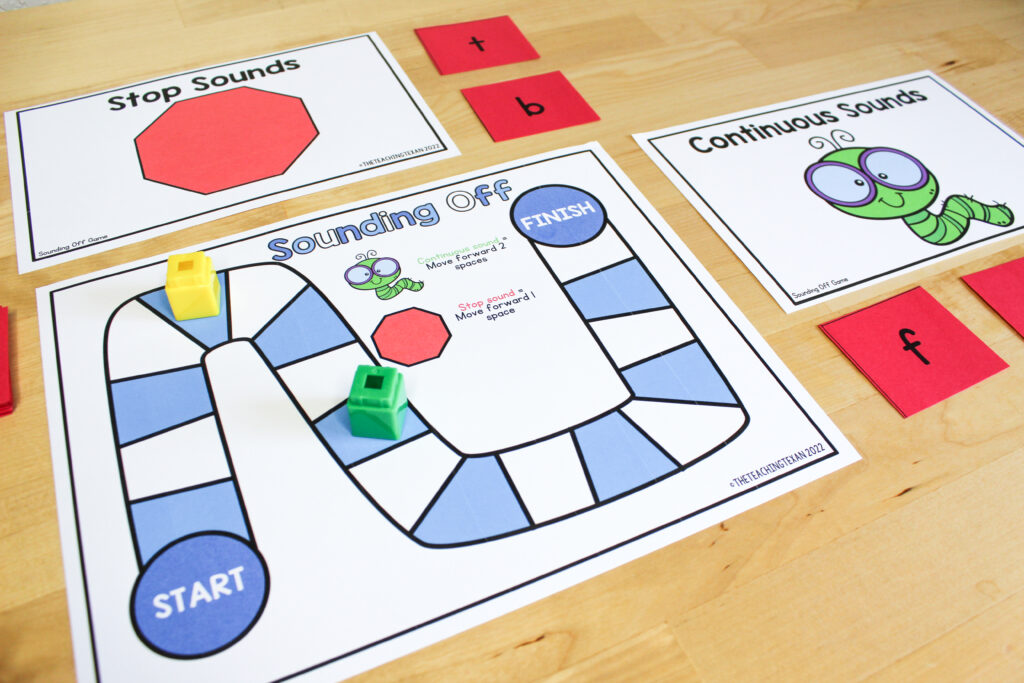How to Plan Small Group Structured Literacy with Pre-Readers
Is small group / structured literacy your jam? (You can be honest, we’re all friends around here!). Once upon a time I honestly did not love planning small group reading because I wasn’t sure what all to include, where to find resources, how to group my students, and the list goes on.
Well my friend, if you are in the same boat I used to be in – I’m here to help! Last week I shared some tips for planning small group reading instruction quickly and today I’m going to break down a small group lesson with pre-reading students.
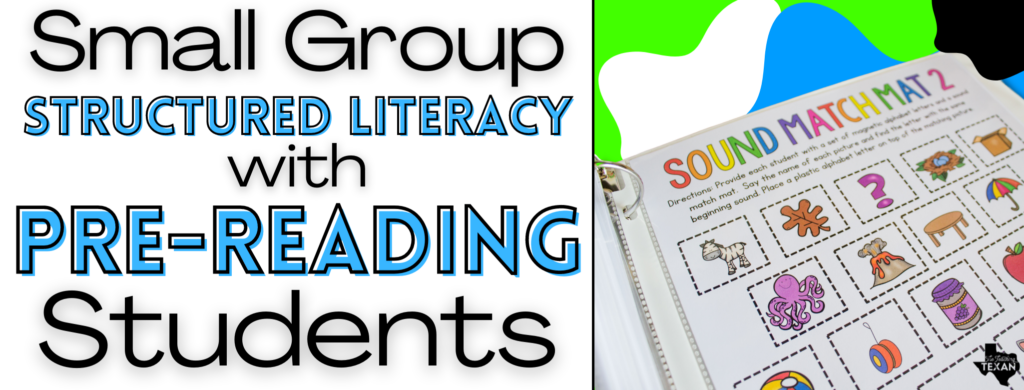
Before we dive into all the juicy details on the lesson, let’s build some background knowledge together.
Following the research in science of reading and approaching small groups with structured literacy in mind can feel a little daunting. But, really we just need to understand the key components of structured literacy – which is a systematic and explicit way of teaching reading (AKA we aren’t just hoping students come to the magical understanding they need for reading).
Really Great Reading shares that there are 6 key elements of structured literacy:
- Phonological Awareness / Phonemic Awareness
- Sound-symbol and alphabetic principle
- Syllables
- Morphology
- Syntax
- Semantics
Today we won’t do a deep dive into all of these because that would be a book rather than a blog post, but I do want to dive into the first 2 components because it’s what I spend a good deal of small group instructional time on with my pre-reading students.
Phonological awareness refers to the continuum of auditory skills that build in complexity from skills like rhyming and alliteration, sentence, syllable, and onset-rime blending and segmentation, and phonemic awareness where students can isolate, blend, segment and manipulate individual sounds in spoken words.
Alright, now that we’ve built some background knowledge together and perhaps you’ve perused some of my other blog posts on these foundational skills, let’s dive into a small group lesson that incorporates these skills.
I’ll start by sharing that meeting with students regularly gives you a strong indicator as to how they are doing and will help you to monitor progress and when they’re ready to jump into decodable readers.
That said, depending on where my students are I may or may not incorporate a decodable reader into my pre-reading lesson.
But, regardless I always start my pre-reader lessons with sound-symbol / letter knowledge activities.
I like to incorporate activities that focus on the letters in my students’ names, linkage charts, and sound match mats. It’s important to note I keep these activities hands on. Students need to be manipulating something – magnetic letters, letter cards, etc.
From there I move into phonological awareness activities. There are a lot of skills under the phonological awareness umbrella, so it’s important to use some sort of continued progress monitoring to know where your students are.
I love pulling from my Exploring Phonological Awareness resource for this portion of my structured literacy / small group lesson because it covers the entire continuum so I always have exactly what I need no matter where my group is.
I also love it because there are pre and post assessments for every skill under the P.A. umbrella so I make sure my students are mastering all of the foundational skills they will need to be skilled readers.
We might spend some time at the word level with rhyming or blending compound words or at the onset-rime level with continuous/stop sounds or blending onset and rime all depending on where they’re at in development.
And truthfully, these two areas can comprise an entire small-group lesson. You can pull several activities for each and double down on building a strong foundation. I’ll also often pull in some handwriting practice – especially when we work on sound-symbol knowledge.
Next week I’ll be back to share a lesson overview for developing readers – so if you’ve got kiddos on the cusp that are ready to dive into decodable books you won’t want to miss that post!
